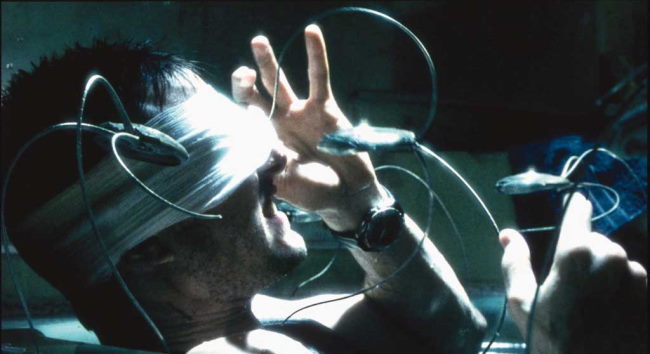
“The way we work, changing destiny and all…we’re more like clergy than cops.”
Steven Spielberg’s 2002 film Minority Report explores a future where “Precrime” technology (enabled by psychics with precognitive powers) allows law enforcement to arrest individuals before they commit crimes. John Anderton (Tom Cruise) leads the Precrime unit with conviction, believing wholeheartedly in the infallibility of the system. However, when the system predicts that Anderton himself will commit a murder, he goes on the run, questioning the very foundation of justice upon which he has built his life.
As the mystery of the film unravels and viewers discover the conspiracy that has led to these events, the imperfections of the Precrime unit become abundantly clear. Our capacity to stop crime and properly punish criminals is always hindered by the limitations of human judgment and the potential for systemic injustice. “The power has always been with the priests, even if they had to invent the oracle,” muses DOJ agent Danny Witwer (Colin Farrell). “If there’s a flaw, it’s human. It always is.”
While Christians don’t serve an “invented oracle,” we’ve seen all too well that the flaws in our religion don’t reside in our perfect God, but in the imperfect people who use Him for their own selfish gains. Take, for instance, Ezekiel 34, in which God condemns Israel’s leaders for abusing His people instead of protecting them.
Minority Report provides even further textual richness for Christian audiences, with themes like determinism versus free will and true sight versus blindness coming into play throughout. But in the context of crime and punishment, it’s important to view the film as a reminder of the ways in which religious, political, or law enforcement leaders can abuse their power, and the responsibility of those figures, the “clergy” changing people’s destinies, to do justice and love mercy while carrying out their duties. — Christian Jessup (A Cloudy Picture)
Arts & Faith Lists:
2024 Top 25 Crime and Punishment Films — #17